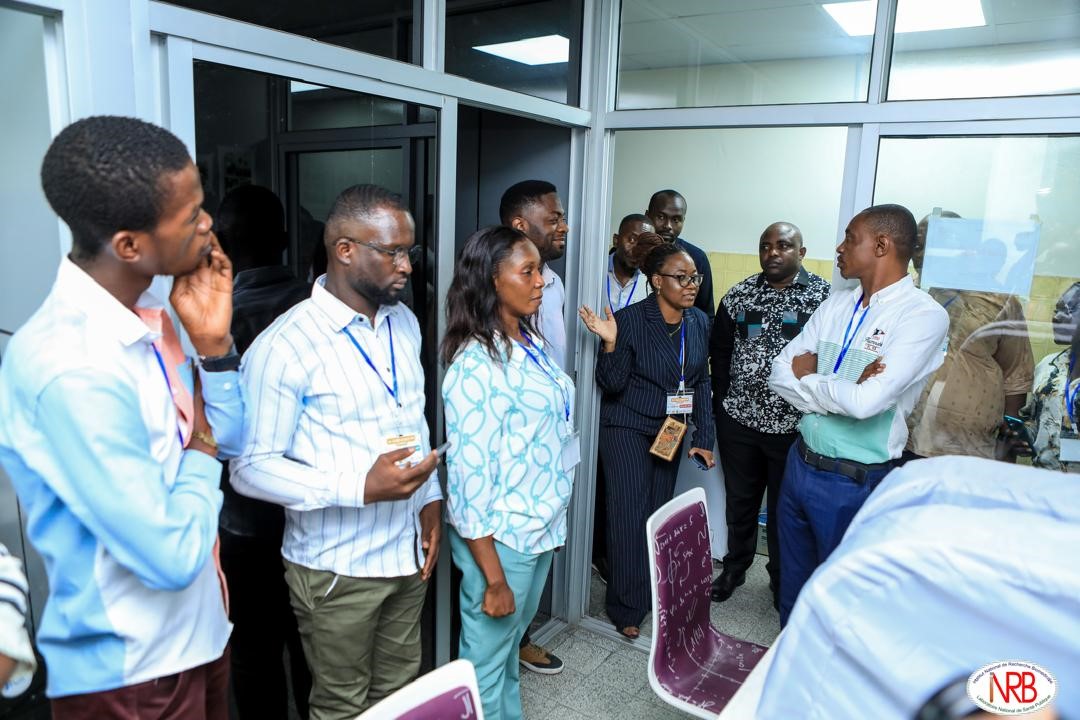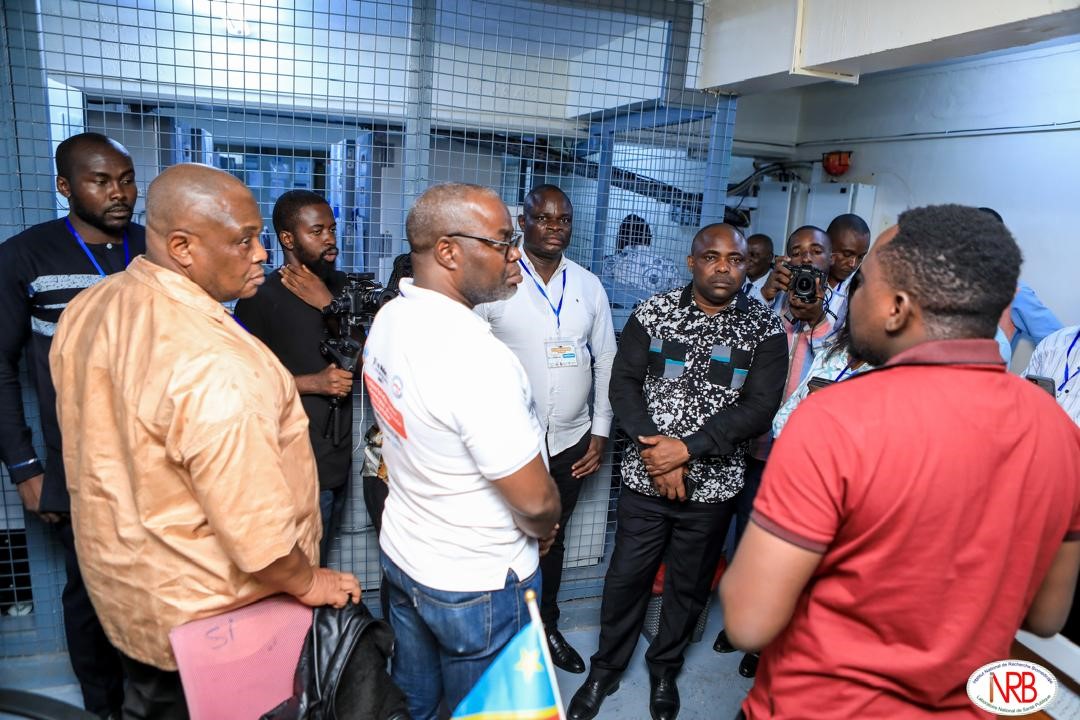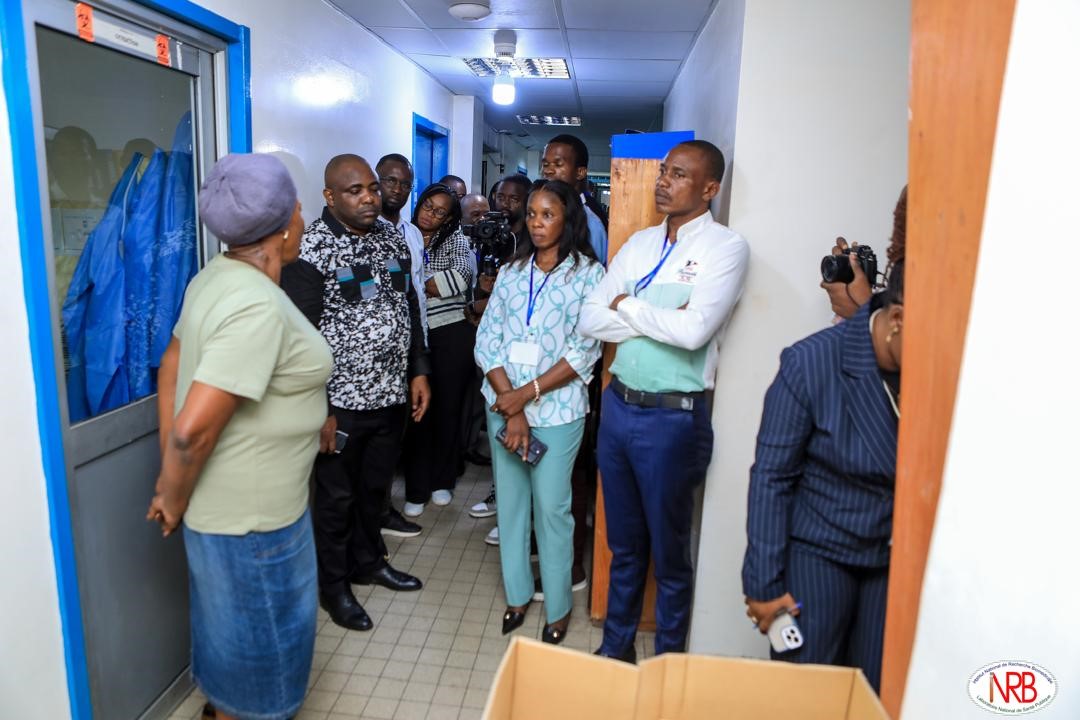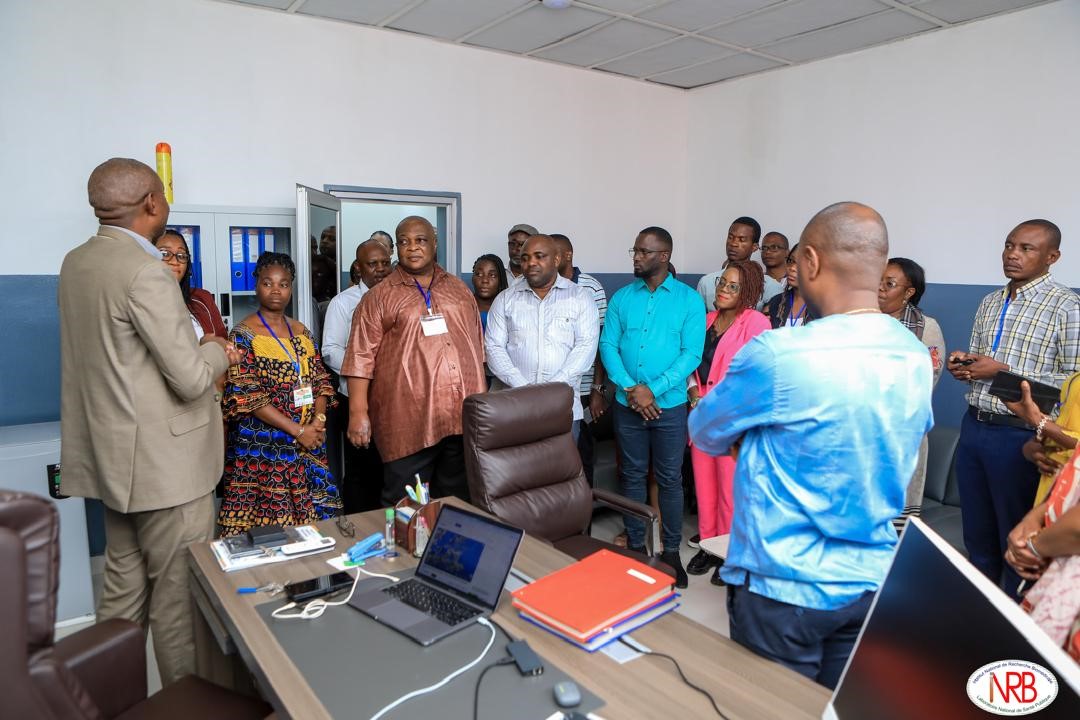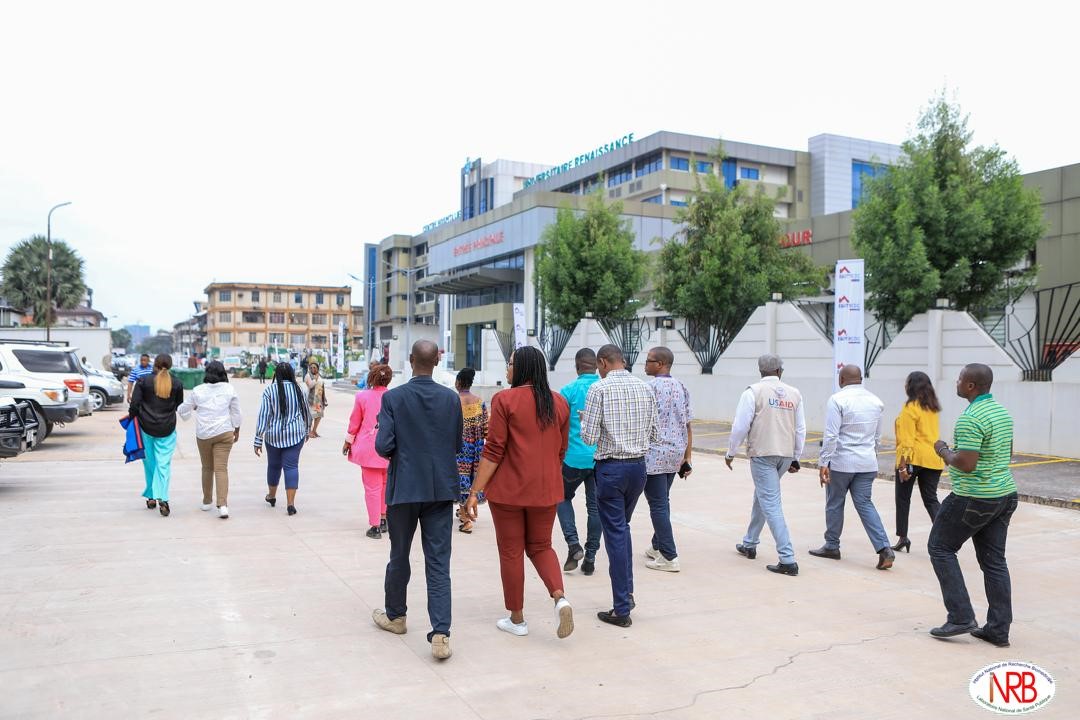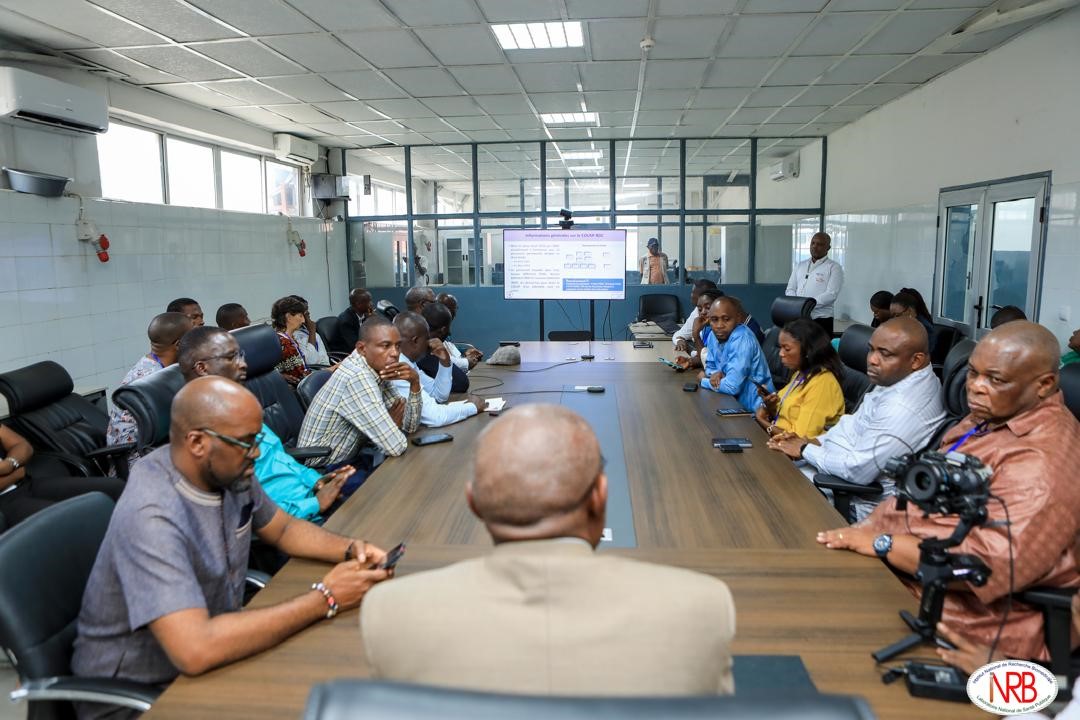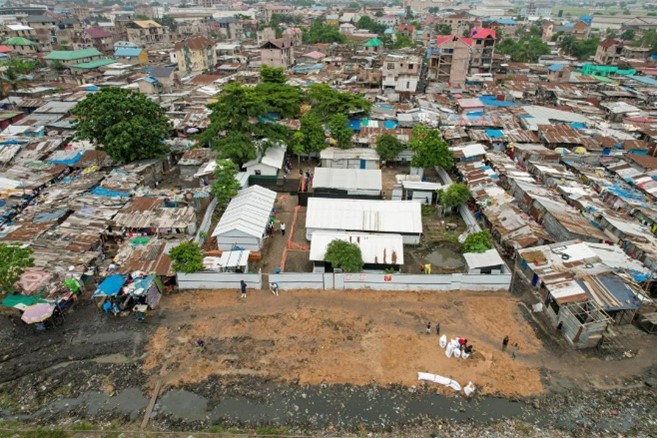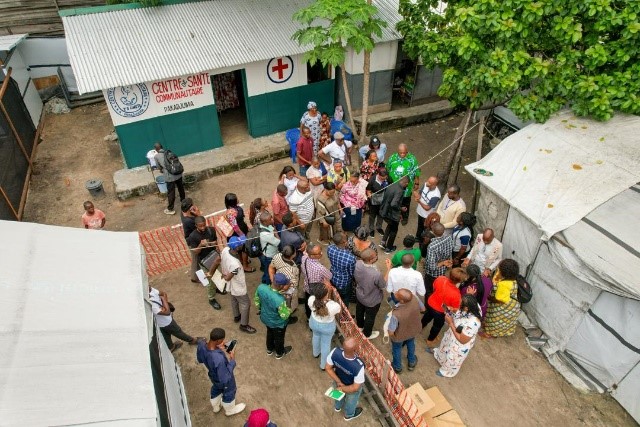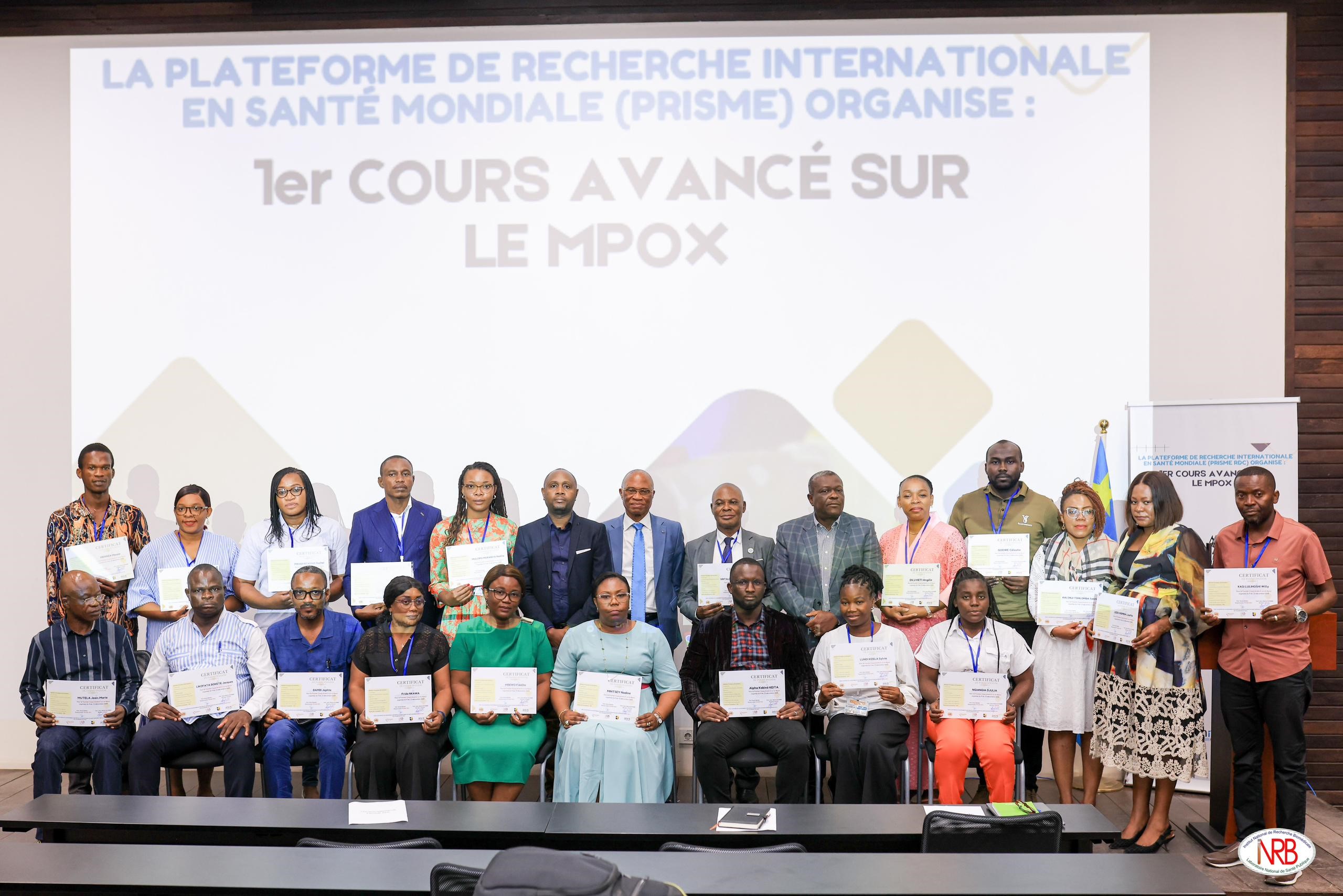
Expert-led course on mpox in the Democratic Republic of Congo
An event organised by PRISME DRC
Last updated on 09 January 2025
In brief
The International Research Platform in Global Health in the Democratic Republic of Congo (PRISME DRC) held an expert-led course on mpox in Kinshasa from 9 to 13 December 2024. This course, hosted by the Institut National de Recherche Biomédicale (INRB), was designed to provide public health and research professionals with the knowledge and skills they need to manage mpox-related health crises more effectively.
Initially endemic, mpox caused a global outbreak in 2022, characterised by sustained human-to-human transmission, including through sexual contact, a first in the history of the disease. Declared a WHO public health emergency of international concern (PHEIC), this epidemic revealed shortcomings in the prevention and management of the disease. The upsurge of cases attributable to a new variant of clade I (clade Ib) precipitated a second WHO PHEIC in 2024.
Objectives of the expert-led course on mpox
This course, the first of its kind in DRC, aimed to:
- Strengthen scientific and technical capacity in the surveillance, diagnosis and management of mpox cases.
- Provide participants with up-to-date knowledge of the disease (clinical, epidemiological and preventive aspects).
- Encourage the exchange of experiences between scientists and healthcare professionals on response strategies.
A diverse and specific audience
The audience included:
- Heads of the provincial health divisions (DPS) of the most affected areas (Kinshasa, Sud-Kivu, Equateur, etc.).
- Representatives of the provincial laboratories testing for mpox.
- Veterinarians and environmental experts involved in an integrated ‘One Health’ approach.
- Congolese and international researchers from various partner networks and institutions, such as the University of Kinshasa (UNIKIN), African and European universities, the ANRS MIE international network and the AFROSCREEN network.
Mpox courses: a wide range of topics and practical approaches
In five days and 35 hours of training, a number of key topics were covered:
- Introduction to mpox: Biology, epidemiology and history of the disease.
- Diagnosis and surveillance: Cutting-edge techniques and challenges in the field.
- Treatment and prevention: Therapeutic options, vaccination and social features.
- Emergency preparedness: Response and cross-border surveillance.
- Research challenges: Identification of priorities in DRC and other countries.
The training programme was both theoretical and practical: case studies, visits to INRB diagnostic laboratories, and meeting with people working in the field.
In addition to focusing on theory, the main advantage of this course was the integration of practical knowledge. Case studies and visits to laboratories involved in surveillance and emergency response were organised to enhance this unique course.
Partners and speakers
This training event was organised in collaboration with national and international institutions: INRB, the University of Kinshasa (UNIKIN), IRD, ANRS MIE, and the AFROSCREEN network. Speakers included renowned experts such as Professors Steve Ahuka (head of PRISME DRC), Jean-Jacques Muyembe (Director of INRB), Jean-Marie Kayembe Ntumba (Rector of UNIKIN) and Éric Delaporte (Head of the IRD Health Department), as well as experts from various Congolese, French, Belgian and Spanish institutions.)

‘The only thing we can share with others without losing what we have is knowledge’.

‘ With this course, we will be sharing our practical and theoretical experiences, with the aim of enriching our knowledge and strengthening our expertise to address the challenges posed by mpox.’
Key moments
- Day 1: Introduction to the virus and epidemiology The opening day, chaired by the Minister of Public Health, Hygiene and Social Prevention, H.E. Samuel Roger Kamba, highlighted the need for local capacity building.
- Day 2: Sessions on diagnosis and surveillance, teaching case studies and interpretation of analyses, reinforced through visits to the diagnostic platforms (molecular and serological) of the ‘Emerging Virus Laboratories’ and ‘Mpox Diagnostics’ units, as well as the sequencing unit and biobank.
- Day 3: Prevention and social impacts, therapeutic options and vaccination challenges, with a visit to the Public Health Emergency Operations Centre (COUSP).
- Day 4: Response measures, cross-border epidemiological surveillance, and organisation of the mpox laboratory network, with a visit to the mpox treatment centre and a visit to the Pakajuma research site, focusing on monitoring of sex workers (SW) and men who have sex with men (MSM).
- Day 5: Research challenges and strategic priorities, followed by a certificate award ceremony.
Conclusion
In the context of the international health emergency posed by mpox, this course marked a turning point in the mobilisation of skills and international collaboration in the DRC. This training course was the first in a series that will be organised each year with the support of PRISME DRC to help build local and regional capacity to respond more effectively to epidemics.

